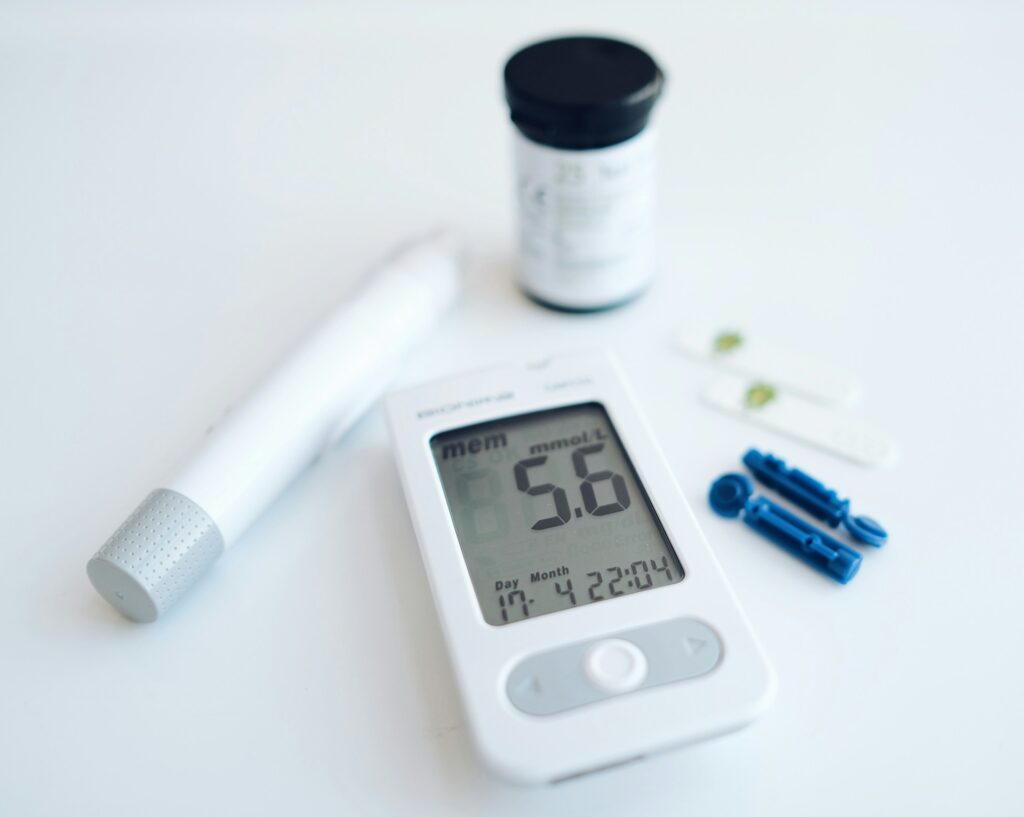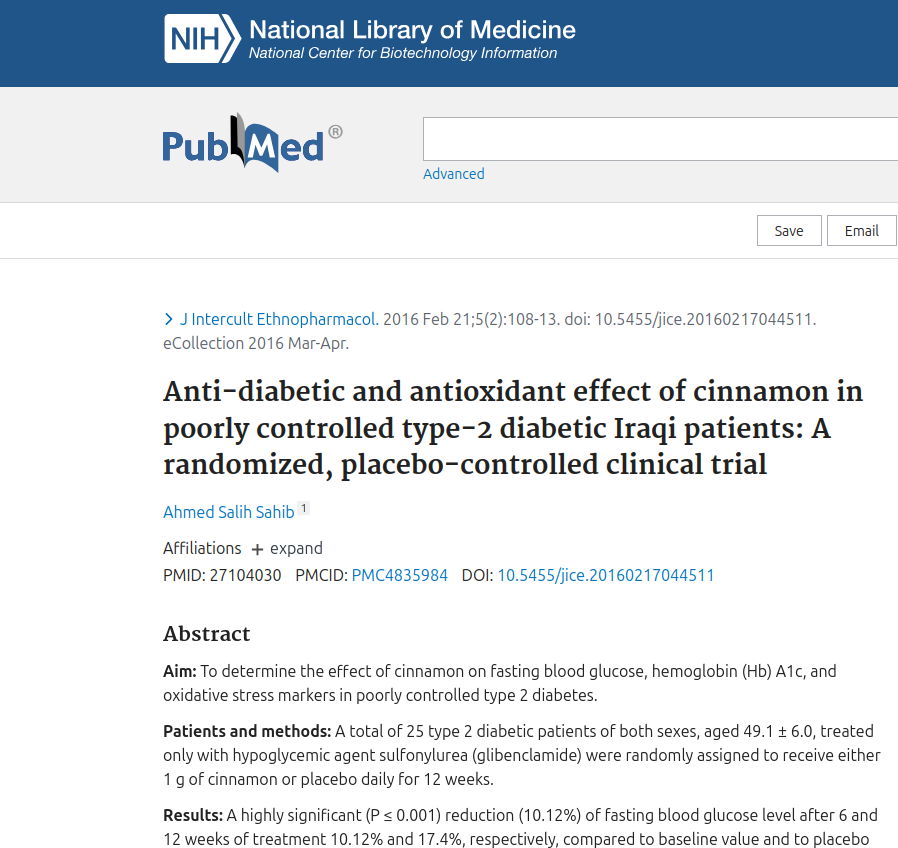The GCC countries in the gulf, which include the Kingdom of Saudi Arabia, Qatar, Oman, Bahrain, Kuwait and the UAE, are considered to exhibit a high prevalence of diabetes. These countries have generally very similar lifestyles, speak Arabic, and enjoy similar diets. This prevalence can perhaps be related to diets, to a certain extent. And, good food and diets are understood to contribute positively against ailments like diabetes. Thus, in this article, we will look at cinnamon, one of the many spices that can positively contribute to good health, and in particular, it’s effect on diabetes.

According to literature published online, it is estimated that approximately 415 million individuals (not only in Saudi Arabia but worldwide) are said be diabetic with the number forecast to average about 642 million in 20401. Now that is perhaps some serious food for thought.
One of the reasons, just one, for this rise in diabetes, is perhaps fructose. In a reliable article from 2010, the author mentions that fructose, which is said to be a cheap form of sugar, is widely used in thousands of soft drinks and food products, and could damage human metabolism, and was fueling obesity2. The research that is referenced in the article, talks about a controlled study, where 16 volunteers were put on a controlled diet that included high levels of fructose.
Now there probably are several other causes linked to diabetes, but in this article, we’re going to be looking at some research where cinnamon had a positive effect against diabetes.
Cinnamon is a spice. And like many other good spices, cinnamon has it’s fair share of excellent properties, that are very beneficial to human health.
So what about diabetes and cinnamon then?
“The spice cinnamon has been identified in helping to prevent diabetes and heart disease.”3
In short, it does appear according to some studies that Cinnamon helps with diabetes, in particular, type 2 diabetes.
We looked at one piece of recent research.

Titled “Anti-diabetic and antioxidant effect of cinnamon in poorly controlled type-2 diabetic Iraqi patients: A randomized, placebo-controlled clinical trial“, this study aimed to “determine the effect of cinnamon on fasting blood glucose, hemoglobin (Hb) A1c, and oxidative stress markers in poorly controlled type 2 diabetes.”
For a duration of 12 weeks, diabetic patients of both sexes were assigned to receive either 1 gram of cinnamon, or a placebo daily for 12 weeks. The results were pretty interesting. By the end of 12 weeks of treatment, a significant reduction was noticed in fasting blood glucose levels. The noticeable difference was a reduction of 17.4%, in those who were given the 1g of cinnamon daily4.
The study concluded that an “intake of 1g of cinnamon for 12 weeks, reduces fasting blood glucose, and glycosylated Hb among poorly controlled type 2 diabetes patients…”. The conclusion indicated the “beneficial effect of adjuvant cinnamon as anti-diabetic and antioxidant along with conventional medications to treat poorly controlled type 2 diabetes mellitus.”
What about Type 1 Diabetes?
Well, like the study above, we looked at another study that sought to “determine the effect of cinnamon on glycemic control in adolescents with type 1 diabetes.” This study however concluded that “Cinnamon is not effective for improving glycemic control in adolescents with type 1 diabetes.”5
So what then is the appropriate understanding between the two? According to a respected medical practitioner (BUMS, MD-Unani Med) whom we spoke to,
“The mechanism of type 1 diabetes, is different from type 2 diabetes. In type 1 diabetes, insulin is missing.
So insulin should be substituted for the patients. In type 2 diabetes, the insulin is there but it is not effective much.
So we can improve the efficiency of the insulin receptors with insulin secretion, and work with cinnamon.
So type 2 diabetes could be helped with not only cinnamon, but garlic, and other spices like black seeds, and fennel seeds. All other spices are good for better control with conventional medicines. Type 1, insulin is the only solution inshaAllah.”
So should you take 1 gram of cinnamon every day?
It does seem like a beneficial decision to make should you be having type 2 diabetes. But should this be a medical decision you should be taking on your own?
While cinnamon may have beneficial effects in people with type 2 diabetes, as a specific medical decision, it is perhaps best to seek the advise of experienced medical professionals.
Since over dosing on cinnamon, or using it incorrectly in particular for people with other conditions that may require less cinnamon intake, could thus maybe result in promoting adverse effects. So, seeking the advice of an experienced medical professional is perhaps advisable for each medical use case.
Cinnamon is a versatile spice. It can be incorporated into your routine or diet in just so many various ways.
Whether that be in the form of having it as garnish on a dessert, or as a flavour enhancer in a delicious and spicy dish, or in your beverages as sprinkle of flavour, it’s versatile.
Some people might prefer more cinnamon and others less, so it’s always important to make sure the right amount is used.
Have you a story to share about your experience with Ceylon Cinnamon? We’d love to hear.
DISCLAIMER: This article is not, and should not be treated as an alternative to the advice or directions of a certified and experienced medical professional.
- https://smj.org.sa/content/42/5/481[↩]
- https://www.healthymuslim.com/articles/jhnxb-obesity-and-diabetes-caused-by-food-sweetener-fructose.cfm[↩]
- Cinnamon Naturally Reduces Risk of Diabetes and Heart Disease – https://www.healthymuslim.com/articles/lkeil-cinnamon-naturally-reduces-risk-of-diabetes-and-heart-disease.cfm[↩]
- https://pubmed.ncbi.nlm.nih.gov/27104030/[↩]
- https://pubmed.ncbi.nlm.nih.gov/17392542/[↩]
